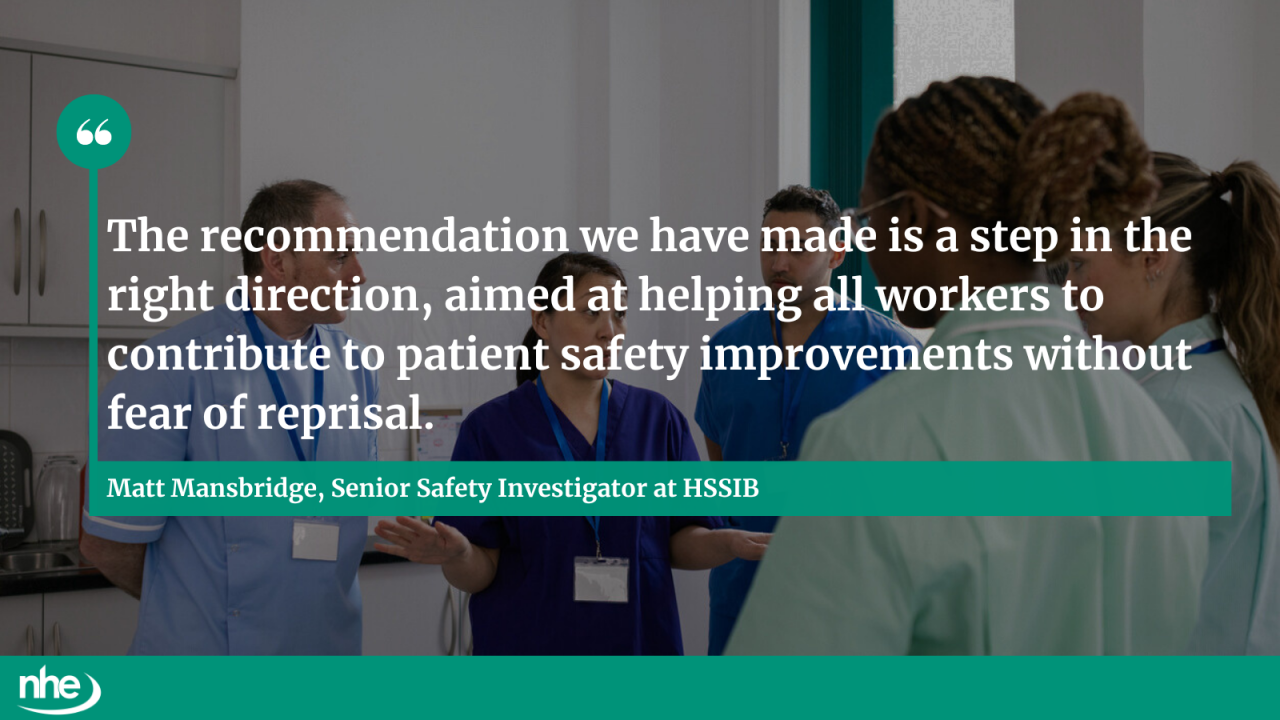A new report from the Health Services Safety Investigations Body (HSSIB) has revealed that patient safety is being impacted by widespread discrimination against temporary NHS staff which stops them speaking up.
During the HSSIB’s investigation into how temporary staff integrate with healthcare providers, engagement was carried out with:
- NHS trusts
- Bank staff providers
- Agencies
- Substantive NHS staff
- Bank and agency staff
- National stakeholders
Troublemaking and blacklisting
Temporary staff told the investigation that they fear speaking out could see them labelled a “troublemaker”, which could lead to them being “blacklisted” by the provider. They also report being made to feel unwelcome and substantive staff sticking together.
The report emphasises the importance of temporary staff to some parts of the NHS. Despite this, the investigators heard a common perception from the NHS frontline and senior management that the ability of some temporary staff could compromise patient safety.
Temporary staff and agencies say that skill and knowledge can vary in the same way it can for substantive staff, but there are generalisations made that temporary staff provide poorer patient care.
This experience is only amplified for those from ethnic minority backgrounds – the NHS Race and Health Observatory told the investigation that those from the aforementioned descent are reluctant to speak up because they are more likely to suffer “harsher consequences” if they do – this was also described by the National Guardian’s Office.
Professor Habib Naqvi, CEO at the observatory, said: “Urgent action is needed now to tackle the unacceptable levels of racism, bias and discrimination at work experienced by temporary employees from Black, Asian and minority ethnic backgrounds.”
He added: “As the biggest employer of Black and ethnic minority staff in Europe, the NHS must implement evidence-based, anti-racism approaches that empower leadership and enhance data-driven accountability for tackling the root causes of these inequalities.”
A step in the right direction
The HSSIB has now told the National Guardian’s Office to identify and address all the barriers that stop temporary staff from speaking up about patient safety concerns.

“An inclusive environment which encourages speaking up can only be achieved when barriers up are reduced or removed entirely,” said senior safety investigator at the HSSIB, Matt Mansbridge.
He added: “It is clear that much change is needed, especially as discriminatory narratives and perceptions around temporary staff are not only seen but also tolerated across the NHS. The recommendation we have made is a step in the right direction, aimed at helping all workers to contribute to patient safety improvements without fear of reprisal.”
Responding to the investigation, NHS Providers’ CEO, Sir Julian Hartley, said: “All NHS staff must feel empowered to speak up. This includes temporary workers who play an important role in enabling the NHS to deliver patient care, especially in the face of major workforce challenges.
“It is also unacceptable that temporary workers from ethnic minority backgrounds experienced racism from both patients and staff members. This creates further challenges and barriers to raising safety concerns.
The NHS has no room for discrimination, he added.
Shining examples
There were some good examples of trusts working to improve relationships with temporary staff. Actions included sending out a local survey asking temporary staff about their experience, and a celebration event for bank staff.
Some temporary staff also told the investigation that they felt fully integrated into the substantive workforce – this is because they had worked a number of shifts on the same ward and thus had been given the opportunity to demonstrate their skills to the wider team.
Julian Hartley added: “While much more needs to be done to tackle the negative culture experienced by temporary staff, it is positive to see examples of trusts’ hard work to support temporary NHS staff in speaking up.
“They know that creating a culture of openness and transparency can help enable high quality care and reduce the risk of future harm to patients.”
The National Health Executive digital magazine is set to be published tomorrow and will include an exclusive account from the NHS’s national guardian, Dr Jayne Chidgey-Clark, on how the workforce can be the key to fixing the ‘broken’ NHS.
Image credit: iStock



















